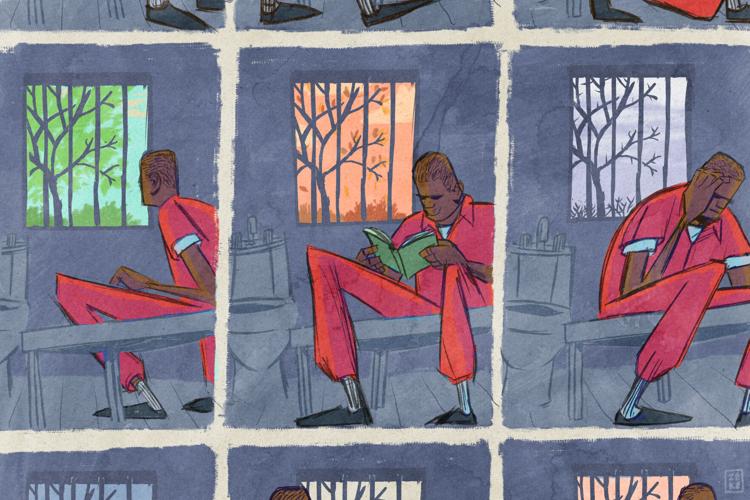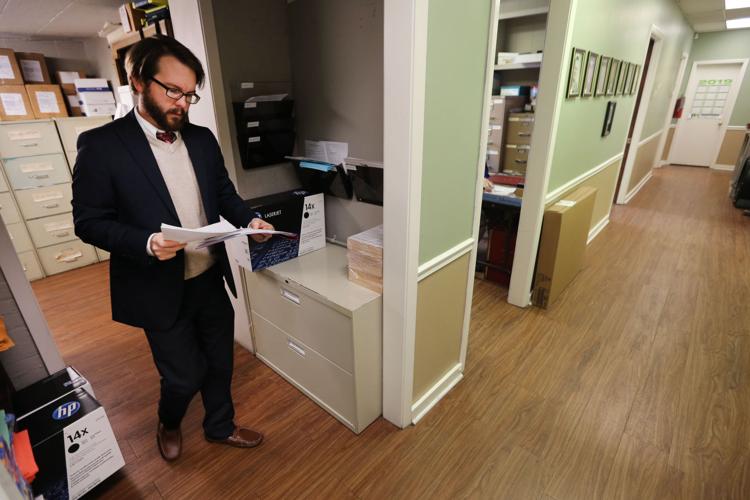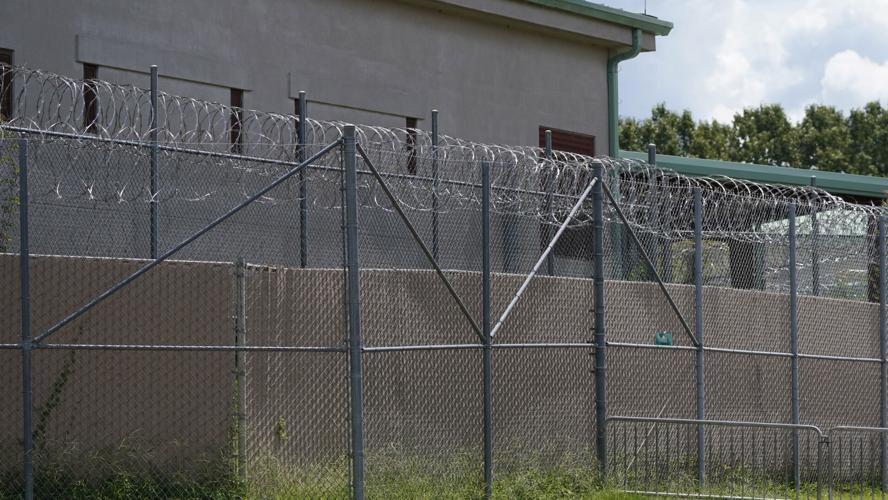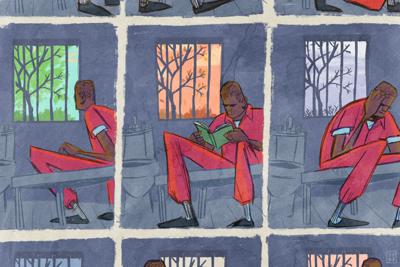In April, the Mississippi Supreme Court changed the rules for state courts to require that poor criminal defendants have a lawyer throughout the sometimes lengthy period between arrest and indictment. The goal is to eliminate a gap during which no one is working on a defendant’s behalf.
×
Javascript is required for you to be able to read premium content. Please enable it in your browser settings.
kAm%92E >2?52E6 H6?E :?E@ 67764E $2EFC52J] qFE 76H @7 E96 DE2E6’D 4@FCED 92G6 A=2?D :? A=246 E@ 492?86 E96:C AC@465FC6D :? 2 H2J E92E :D =:<6=J E@ 244@>A=:D9 H92E E96 ;FDE:46D :?E6?565]k^Am
kAmp DFCG6J @7 4@FCED 3J E96 s2:=J y@FC?2=[ !C@!F3=:42 2?5 %96 |2CD92== !C@;64E 7@F?5 E92E D@>6 =@42= 4@FCE @77:4:2=D 2C6 F?2H2C6 @7 E96 ?6H CF=6] ~E96CD 92G6 ?@E 564:565 9@H E96J H:== C6DA@?5] $@>6 @77:4:2=D DF886DE65 E92E E96:C 4FCC6?E AC24E:46 @7 2AA@:?E:?8 =2HJ6CD @?=J 7@C =:>:E65 AFCA@D6D H:== 7F=7:== E96 ?6H C6BF:C6>6?E[ 6G6? E9@F89 E9@D6 2EE@C?6JD 5@ =:EE=6 36J@?5 2EE6?5:?8 62C=J 4@FCE 962C:?8D]k^Am
kAm%92E C6A@CE:?8 DF886DED E92E :>A@G6C:D965 5676?52?ED :? >2?J |:DD:DD:AA: 4@F?E:6D 2C6 =:<6=J E@ C6>2:? 56AC:G65 @7 >62?:?87F= =682= 2DD:DE2?46 2D E96J H2:E[ @7E6? :? ;2:=[ 7@C AC@D64FE@CD E@ 564:56 H96E96C E@ AFCDF6 76=@?J 492C86D]k^Am
kAm“%96C6’D C62==J ?@E 2 A=2?[” D2:5 r9F4< w@A<:?D[ 2 ;F586 :? 2 4@F?EJ\=6G6= ;FDE:46 4@FCE :? ?@CE962DE |:DD:DD:AA:’D {66 r@F?EJ] w6 762CD E92E :7 @77:4:2=D 5@?’E 4@>6 FA H:E9 @?6[ E96 4@FCE 4@F=5 36 “9F?8 @FE E96C6 H2:E:?8 7@C 2 =2HDF:E E@ 92AA6?]”k^Am
kAmp?5Cé 56 vCFJ[ H9@ CF?D |:DD:DD:AA:’D ~77:46 @7 $E2E6 !F3=:4 s676?56C 2?5 :D C64@8?:K65 E9C@F89@FE E96 DE2E6 2D 2? 6IA6CE @? :?5:86?E 5676?D6[ D2:5 ;FDE 7@FC @7 E96 DE2E6’D ab 4:C4F:E 4@FCE 5:DEC:4ED 92G6 2D<65 9:> 7@C 25G:46 @? 9@H E@ 4@>A=J H:E9 E96 ?6H CF=6] w6 C6DA@?565 3J 56G6=@A:?8 2 k2 9C67lQ9EEADi^^HHH]5@4F>6?E4=@F5]@C8^5@4F>6?ED^abgebddh\AC@A@D65\:?5:86?E\5676?D6\CF=6DQ E2C86ElQ03=2?<Qm>@56= AC@46DDk^2m E96J 4@F=5 FD6]k^Am
kAmp7E6C D@>6@?6 :D 2CC6DE65 7@C 2 76=@?J :? |:DD:DD:AA:[ E92E A6CD@? 92D 2? :?:E:2= 2AA62C2?46 :? 4@FCE] p ;F586 :?7@C>D E96 5676?52?E @7 E96 492C86D 282:?DE E96>[ D6ED E96 4@?5:E:@?D 7@C 36:?8 C6=62D65 7C@> ;2:=[ 2?5 2AA@:?ED 2 =2HJ6C :7 E96 5676?52?E 42?’E 277@C5 @?6] &?56C 4FCC6?E CF=6D[ :? >2?J 4@FCED E92E =2HJ6C 92?5=6D ;FDE E96 :?:E:2= 2AA62C2?46 2?5[ :? D@>6 42D6D[ 2? @AE:@?2= AC6=:>:?2CJ 962C:?8 H96? 6G:56?46 :D AC6D6?E65] p7E6C E92E[ E96 =2HJ6C 6I:ED E96 42D6]k^Am
kAm~?=J 27E6C E96 5676?52?E :D :?5:4E65[ H9:49 @7E6? E2<6D >@?E9D[ :D 2?@E96C =2HJ6C 2AA@:?E65] rC:E:4D 92G6 5F3365 E96 A6C:@5 36EH66? =2HJ6CD E96 “5625 K@?6]”k^Am
kAm|:DD:DD:AA: 8:G6D 5:DEC:4E 2EE@C?6JD F?=:>:E65 E:>6 E@ :?5:4E D@>6@?6 27E6C 2? 2CC6DE[ 2?5 :E’D 2>@?8 2 92?57F= @7 DE2E6D H96C6 k2 9C67lQ9EEADi^^Db]5@4F>6?E4=@F5]@C8^5@4F>6?ED^abgebddf^492C8:?8\E:>6\>6EK86C\9@6776=]A57RA286l`eQ E2C86ElQ03=2?<Qm5676?52?ED 42? 36 ;2:=65 :?567:?:E6=Jk^2m 2D E96J 2H2:E :?5:4E>6?E[ 244@C5:?8 E@ C646?E C6D62C49 3J !2> |6EK86C[ 2 =682= D49@=2C H9@ CF?D E96 s62D@? rC:>:?2= yFDE:46 #67@C> r6?E6C 2E $@FE96C? |6E9@5:DE &?:G6CD:EJ’D s65>2? $49@@= @7 {2H]k^Am
kAm“|:DD:DD:AA: :D 2>@?8 E96 H@CDE @7 E96 H@CDE @? E9:D :DDF6[” |6EK86C D2:5]k^Am
kAmr=:77 y@9?D@?[ 2 =2HJ6C H9@ AFD965 7@C E96 C6G:D65 :?5:86?E 5676?D6 CF=6[ 92D 5@4F>6?E65 9@H E9@D6 EH@ 724E@CD — E96 =24< @7 2? :?5:4E>6?E 5625=:?6 2?5 E96 =24< @7 =682= C6AC6D6?E2E:@? :? E96 “5625 K@?6” — 42? k2 9C67lQ9EEADi^^HHH]>D;2:=52E2]4@>^AC6DD\C6=62D6D^y2:=Ta_s2E232D6Ta_!C6DDTa_#6=62D6Ta_`]a`]A57Q E2C86ElQ03=2?<Qm42FD6 5676?52?ED E@ 36 ;2:=65 7@C >@?E9D @C J62CDk^2m] (:E9@FE 2 =2HJ6C[ 5676?52?ED >2J 92G6 2 92C5 E:>6 7:89E:?8 E96:C 492C86D @C DEC:<:?8 A=62 562=D]k^Am
Cliff Johnson, head of the Mississippi office of the MacArthur Justice Center, speaks in Hinds County Chancery Court in Jackson in May.
Rogelio V. Solis/AP
kAmy@9?D@?[ H9@ =625D E96 |:DD:DD:AA: @77:46 @7 E96 |24pCE9FC yFDE:46 r6?E6C[ 2 4:G:= C:89ED =2H 7:C>[ D2:5 25G@424J @C82?:K2E:@?D =:<6 9:D H:== >@?:E@C 4@FCED 7@C 4@>A=:2?46 H:E9 E96 ?6H CF=6]k^Am
kAm“%9:D DECF4EFC2= 492?86 >62?D ?@E9:?8[” 96 D2:5[ “:7 =@42= ;F586D 5@?’E 4C62E6 2?5 :>A=6>6?E ?6H 4@>AC696?D:G6 A=2?D 7@C :?5:86?E 5676?D6]”k^Am
k9am!2E49H@C< @7 r@FCE $JDE6>D w2?5=6 x?5:86?E s676?D6k^9am
kAm%96 ?6H CF=6 @? :?5:86?E 5676?D6 >2<6D @?6 <6J 492?86i xE D2JD 2 =2HJ6C >2J ?@E H:E95C2H 7C@> 2 42D6 A6?5:?8 :?5:4E>6?E F?E:= 2?@E96C 92D 366? 2AA@:?E65]k^Am
kAm~C56C:?8 E92E 492?86 ?@H =@@<D =:<6 E96 62DJ A2CE] x>A=6>6?E:?8 :E :D 2?@E96C DE@CJ[ =2C86=J 3642FD6 @7 E96 A2E49H@C< @7 4@FCED :? |:DD:DD:AA:]k^Am
kAmrC:>:?2= 5676?52?ED >2J >@G6 E9C@F89 2D >2?J 2D E9C66 5:776C6?E 4@FCE DJDE6>D[ 6249 H:E9 :ED @H? DJDE6> @7 AF3=:4 5676?D6[ 2D E96J 8@ 7C@> 2CC6DE E@ 2 A=62 562= @C G6C5:4E]k^Am
Dennis Farris, seen here in 2019, is the public defender in the city of Tupelo’s municipal court.
Adam Robison | Daily Journal
kAm|:DD:DD:AA: :D @?6 @7 @?=J 6:89E DE2E6D H:E9@FE DE2E6 @G6CD:89E @7 AF3=:4 5676?D6[ 244@C5:?8 E@ E96 $:IE9 p>6?5>6?E r6?E6C[ H9:49 25G@42E6D 7@C C@3FDE :?5:86?E 5676?D6] x?DE625[ =@42= 8@G6C?>6?ED 362C 2=>@DE 2== E96 C6DA@?D:3:=:EJ @7 AC@G:5:?8 A@@C 4C:>:?2= 5676?52?ED H:E9 2? 2EE@C?6J[ 2D 8F2C2?E665 3J E96 r@?DE:EFE:@?]k^Am
kAmp 76H =@42= 8@G6C?>6?ED 6>A=@J 7F==\E:>6 AF3=:4 5676?56CD] |@DE C6=J @? A2CE\E:>6 AF3=:4 5676?56CD @C 4@?EC24E H:E9 AC:G2E6 2EE@C?6JD] %96J 2== 86?6C2==J 92G6 9:89 42D6=@25D]k^Am
kAm}@H[ @77:4:2=D :? E9@D6 5:776C6?E 4@FCE DJDE6>D >FDE 7:8FC6 @FE 9@H E@ 6?DFC6 E92E 5676?52?ED >2:?E2:? =682= C6AC6D6?E2E:@? 2D E96J >@G6 7C@> 4@FCEC@@> E@ ;2:= E@ 4@FCEC@@>]k^Am
kAm%@ F?56CDE2?5 9@H 4@FCED H:== 5@ E92E[ E96 s2:=J y@FC?2=[ !C@!F3=:42 2?5 %96 |2CD92== !C@;64E 4@?E24E65 @77:4:2=D :? 2== ab 4:C4F:E 4@FCE 5:DEC:4ED[ >@DE @7 H9:49 4@G6C >@C6 E92? @?6 4@F?EJ[ 2D H6== 2D >@C6 E92? 2 5@K6? @77:4:2=D :? >F?:4:A2= 4@FCED 2?5 D6A2C2E6 4@F?EJ\=6G6= ;FDE:46 4@FCED] (6 DA@<6 H:E9 >@C6 E92? a_ ;F586D[ AF3=:4 5676?56CD[ AC@D64FE@CD[ 4@FCE 4=6C<D 2?5 AC:G2E6 5676?D6 2EE@C?6JD]k^Am
kAm~?=J 2 76H 4:C4F:E 5:DEC:4ED D2:5 E96J H6C6 H@C<:?8 E@ 92G6 2 ?6H A@=:4J 3J $2EFC52J[ :?4=F5:?8 EH@ @? E96 vF=7 r@2DE 2?5 @?6 :? D@FE9H6DE |:DD:DD:AA:] |2?J @E96C 4@FCE @77:4:2=D D2:5 E96J 5@?’E <?@H 6I24E=J 9@H E96J’== 4@@C5:?2E6 2>@?8 E96 2AA@:?E65 =2HJ6CD H9@ C6AC6D6?E 5676?52?ED[ D@>6E:>6D 3C:67=J[ :? 4@FCE] $@>6 @77:4:2=D H@CCJ E96J’== 92G6 E@ A2J E@ 5676?5 A6@A=6 H9@ 92G6 492C86D A6?5:?8 :? 2 5:776C6?E ;FC:D5:4E:@?]k^Am
kAmx? %FA6=@[ =@42E65 :? ?@CE962DE |:DD:DD:AA:’D {66 r@F?EJ[ @77:4:2=D D2J E96J’C6 DECF88=:?8 E@ 7:8FC6 @FE 9@H E@ 3C:586 E96 82A 36EH66? E96 >F?:4:A2= 4@FCE[ H96C6 A6@A=6 492C865 H:E9 76=@?:6D @7E6? 92G6 E96:C :?:E:2= 2AA62C2?46[ 2?5 4:C4F:E 4@FCE[ H96C6 E9@D6 492C86D 2C6 F=E:>2E6=J 564:565]k^Am
kAmx?5:86?E 5676?52?ED 2C6 C6AC6D6?E65 :? %FA6=@’D >F?:4:A2= 4@FCE 3J 2 7F==\E:>6 AF3=:4 5676?56C[ s6??:D u2CC:D] w6 86?6C2==J >2<6D 2 42D6 7@C 2 =@H 3@?5 D@ 9:D 4=:6?E 42? 36 C6=62D65 7C@> ;2:= 2?5 25G:D6D E96 5676?52?E @? H96E96C E@ C6BF6DE 2 AC6=:>:?2CJ 962C:?8]k^Am
kAmqFE 27E6C E96 :?:E:2= 962C:?8 :D 96=5 @C E96 5676?52?E H2:G6D E96:C C:89E E@ :E[ E96 >F?:4:A2= 4@FCE =@D6D ;FC:D5:4E:@? @G6C 76=@?J 42D6D]k^Am
kAmr:EJ @77:4:2=D 28C66 E92E E96 ?6H CF=6 >62?D u2CC:D 42??@E H:E95C2H 7C@> E9@D6 42D6D[ 3FE E96J H2?E =@42= 4:C4F:E ;F586D E@ 28C66 E@ 2AA@:?E 76=@?J AF3=:4 5676?56CD :>>65:2E6=J 27E6C E96 AC6=:>:?2CJ 962C:?8 :D 96=5 @C H2:G65 D@ u2CC:D 42? 7@4FD @? E96 ;@3 96’D A2:5 E@ 5@ :? >F?:4:A2= 4@FCE]k^Am
kAm~77:4:2=D :? E96 >F?:4:A2= 4@FCE 7@C $@FE92G6?[ :? E96 |6>A9:D DF3FC3D[ H2?E E96:C 4:C4F:E ;F586D E@ 28C66 E@ E96 D2>6 E9:?8]k^Am
kAmu2CC:D DA6?5D >@DE @7 6G6CJ H@C<52J :? >F?:4:A2= 4@FCE[ 92?5=:?8 E96 DE625J DEC62> @7 >:D56>62?@CD 2?5 76=@?J :?:E:2= 2AA62C2?46D[ H:E9 =:EE=6 E:>6 E@ E6?5 E@ 42D6D E92E H:== 6G6?EF2==J 36 92?5=65 3J 2?@E96C 4@FCE DJDE6>]k^Am
kAm“x7 x’> DE:== @? E9@D6 42D6D[ H92E 2> x DFAA@D65 E@ 5@n $6?5 2 3:== E@ E96 4@F?EJn” 96 2D<65] “x’== 5@ H92E x 42?] qFE x’> @?=J @?6 A6CD@?]”k^Am
kAm{66 r@F?EJ’D ;FDE:46 4@FCE 7246D 2 5:776C6?E[ 3FE 4@>>@?[ 492==6?86 :? 7@==@H:?8 E96 ?6H CF=6i %96 AC:G2E6 2EE@C?6J H9@ 92?5=6D :?5:86?E 5676?D6 EJA:42==J 92D 2 =:>:E65 C@=6] s2? s2G:D 92?5=6D @?=J 3@?5 C65F4E:@?D[ H66<D 27E6C 2 5676?52?E’D :?:E:2= 2AA62C2?46 :? 4@FCE]k^Am
kAms2G:D 5@6D?’E 2EE6?5 :?:E:2= 2AA62C2?46D 2?5 C2C6=J C6BF6DED AC6=:>:?2CJ 962C:?8D 7@C 9:D 4=:6?ED] w6 24ED @? 3692=7 @7 5676?52?ED @?=J :7 E96J C6>2:? :? ;2:= 27E6C b_ 52JD] x7 D@[ 96 4@?E24ED E96> E@ 82E96C :?7@C>2E:@? E@ 7:=6 2 3@?5 C65F4E:@? >@E:@?]k^Am
kAm“x7 D@>6@?6 3@?5D @FE[ >J A2CE :D 32D:42==J 5@?6” 6I46AE :? C2C6 4:C4F>DE2?46D[ s2G:D D2:5] “%96J’C6 @77 >J =:DE]”k^Am
kAmv:G6? E92E E96 ;FDE:46 4@FCE 92D =:>:E65 6IA64E2E:@?D @7 H92E 96 >FDE 5@[ s2G:D 36=:6G6D 96 7F=7:==D 9:D @3=:82E:@?D E@ 5676?52?ED]k^Am
kAmw6 2?E:4:A2E6D =:EE=6 492?86 :? 9@H 96 5@6D 9:D ;@3 F?56C E96 ?6H CF=6] $:?46 96 ?6G6C 7:=6D >@E:@?D E@ H:E95C2H 7C@> 9:D 42D6D[ s2G:D D2:5[ 96 H:== C6>2:? 2 5676?52?E’D 2EE@C?6J F?E:= 2? :?5:4E>6?E[ 2?5 E96 ?6H CF=6 H:== 2AA62C E@ 36 D2E:D7:65]k^Am
kAmqFE 96 36=:6G6D :E :D “G6CJ F?FDF2=” 7@C 2 5676?52?E E@ C6BF:C6 >F49 =682= 2DD:DE2?46 27E6C 3@?5:?8 @FE] x7 96 H6C6 E@ 7:?5 9:D H@C<=@25 :?4C62D:?8[ 96 >2J ?@E H2?E E@ <66A E96 ;@3] w@A<:?D[ E96 ;FDE:46 4@FCE ;F586[ D2:5 E96 4@F?EJ >2J ?665 E@ 7:?5 2 7F==\E:>6 AF3=:4 5676?56C]k^Am
kAmtIA6CED D2J 5FC:?8 E96 7:CDE 76H >@?E9D 27E6C D@>6@?6 :D 2CC6DE65 7@C 2 76=@?J[ E96C6’D :>A@CE2?E H@C< E@ 36 5@?6i :?E6CG:6H:?8 H:E?6DD6D[ D64FC:?8 6G:56?46[ A6C92AD D66<:?8 2? 62C=J A=62 562=] x7 D@>6@?6 :D ;2:=65 7@C >@?E9D H:E9@FE 36:?8 :?5:4E65[ E96:C 2EE@C?6J 42? 2D< E96 sp H92E’D E2<:?8 D@ =@?8 @C 7:=6 2 >@E:@? E@ 5:D>:DD E96 42D6]k^Am
kAmyFDE:? r@@<[ E96 7@C>6C 9625 @7 E96 DE2E6 AF3=:4 5676?56C’D 2DD@4:2E:@?[ H2C?65 2EE@C?6JD 282:?DE DFA6C7:4:2= 2596C6?46 E@ E96 ?6H C6BF:C6>6?E]k^Am
kAm“*@F @H6 2? :?5:86?E 5676?52?E 67764E:G6 C6AC6D6?E2E:@? F?56C E96 r@?DE:EFE:@?[” 96 D2:5] “*@F 2C6 ?@E ?@>:?2==J E96:C =2HJ6C] *@F 2C6 E96:C =2HJ6C[ 2?5 J@F 92G6 5FE:6D 2?5 @3=:82E:@?D E@ E96>]”k^Am
k9amp? p=:3: %92E vC6H r@=5k^9am
kAmp 42D6 :? w:?5D r@F?EJ E92E :D H6?5:?8 :ED H2J E9C@F89 7656C2= 2AA62=D D9@HD H92E 42? 92AA6? :7 2? 2AA@:?E65 =2HJ6C 5@6D?’E 24E 62C=J 2?5 288C6DD:G6=J E@ :?G6DE:82E6 2 5676?52?E’D 4=2:>D @7 :??@46?46]k^Am
kAm$65C:4< #FDD6== 92D DA6?E >@C6 E92? `d J62CD 2C8F:?8 :? 4@FCE 7:=:?8D E92E 96 =24<65 C6AC6D6?E2E:@? 27E6C 96 H2D 2CC6DE65 7@C 2 ?@?72E2= D9@@E:?8 H:E9 ?@ 6J6H:E?6DD6D]k^Am
Sedrick Russell claims in court filings that he didn’t have a lawyer for 14 months while he was jailed at the Raymond Detention Center in Hinds County, Mississippi, awaiting trial. That includes eight months as he awaited indictment.
Rogelio V. Solis/AP
kAmuC@> 9:D 2CC6DE :? s646>36C a__e F?E:= u63CF2CJ a__g[ #FDD6== 4=2:>D[ 96 DA@<6 H:E9 2 AF3=:4 5676?56C ;FDE @?46[ 3C:67=J] sFC:?8 E92E E:>6[ 96 D6?E D6G6? 92?5HC:EE6? =6EE6CD E@ E96 4@FCE 2==68:?8 E92E 9:D C:89E E@ 2 DA665J EC:2= 925 366? G:@=2E65 2?5 4@>A=2:?:?8 E92E 96 925?’E DA@<6? E@ 2? 2EE@C?6J]k^Am
kAm#FDD6== 92D 4=2:>65 :? 4@FCE 7:=:?8D E92E 2E 9:D AC6=:>:?2CJ 962C:?8 :? y2?F2CJ a__f[ 96 EC:65 E@ E6== 2 =2HJ6C H:E9 E96 w:?5D r@F?EJ !F3=:4 s676?56C’D ~77:46 23@FE 2? 2=:3:] qFE 96 5:5?’E 86E 72C]k^Am
kAm#FDD6== 4=2:>D E92E 367@C6 E96 D9@@E:?8[ 96 8@E :?E@ 2 42C 5C:G6? 3J 2 7C:6?5 96 <?6H @?=J 2D #@? #@?[ 2?5 E96 EH@ =67E E96 D:E6 H96C6 E96 D9@@E:?8 =2E6C E@@< A=246]k^Am
kAm“%96 2DD:DE2?E AF3=:4 5676?56C H9@ 42>6 E@ 9:D AC6=:>:?2CJ 962C:?8 3CFD965 @77 #FDD6==’D C6BF6DE E@ 86E #@? #@? E@ E6DE:7J[ E6==:?8 #FDD6==[ ‘xE H2D ;FDE 2 AC6=:>:?2CJ]’ $96 ?6G6C 42>6 324<[” &]$] s:DEC:4E yF586 r2C=E@? #66G6D =2E6C HC@E6[ 27E6C #FDD6== 925 2AA62=65 9:D 4@?G:4E:@?]k^Am
kAmx? u63CF2CJ a__g[ E96 DE2E6 EC:2= ;F586 C6>@G65 E96 w:?5D r@F?EJ !F3=:4 s676?56C’D ~77:46 7C@> E96 42D6 2?5 2AA@:?E65 2 AC:G2E6 =2HJ6C[ s@? q@J<:?] (:E9:? 23@FE 2 >@?E9[ q@J<:? E@=5 AC@D64FE@CD E92E #FDD6== :?E6?565 E@ C2:D6 2? 2=:3: 5676?D6] qFE q@J<:? ?6G6C 7@F?5 #@? #@?]k^Am
kAm#FDD6== H2D 4@?G:4E65 :? 2 ;FCJ EC:2= :? y2?F2CJ a__h 2?5 D6?E6?465 E@ EH@ =:76 E6C>D 3642FD6 96 925 366? 566>65 2 923:EF2= @776?56C]k^Am
In April 2008, Sedrick Russell wrote to a judge and complained that he’d been deprived of meaningful legal representation and had lost contact with a potential alibi witness.
Obtained by Northeast Mississippi Daily Journal
kAmxE E@@< J62CD 7@C #FDD6== E@ 6I92FDE 9:D 2AA62=D :? DE2E6 4@FCE] (96? 96 E@@< 9:D 42D6 E@ 7656C2= 4@FCE[ k2 9C67lQ9EEADi^^HHH]5@4F>6?E4=@F5]@C8^5@4F>6?ED^abgecceg\C66G6D\@A:?:@?\CFDD6==\G\56?>2C<Q E2C86ElQ03=2?<Qm#66G6D CF=65k^2m E92E #FDD6== 925 366? 56?:65 9:D $:IE9 p>6?5>6?E C:89E E@ 2? 2EE@C?6J[ 6G6? E9@F89[ 2D 72C 2D E96 =@42= 4@FCED H6C6 4@?46C?65[ 96 H2D C6AC6D6?E65 3J :?5:86?E 4@F?D6= E96 6?E:C6 E:>6] %96 ;F586 56E6C>:?65 E92E #FDD6== 925 366? “4@>A=6E6=J 232?5@?65 3J 4@F?D6=” 7@C `c >@?E9D[ :?4=F5:?8 6:89E 367@C6 96 H2D :?5:4E65]k^Am
kAm#66G6D G242E65 #FDD6==’D 4@?G:4E:@? 3FE DE2J65 9:D @C56C A6?5:?8 2? 2AA62= E@ E96 u:7E9 &]$] r:C4F:E r@FCE @7 pAA62=D]k^Am
kAmx? |2J[ E96 2AA62=D 4@FCE C6G6CD65 #66G6D’ CF=:?8 2?5 C6:?DE2E65 #FDD6==’D 4@?G:4E:@?] %96 E9C66\;F586 A2?6= CF=65 E92E #66G6D 925 @G6CDE6AA65 9:D =:>:E65 2FE9@C:EJ E@ @G6CEFC? 2 DE2E6 4@FCE[ 8:G6? 2 7656C2= =2H E92E D6ED 2 9:89 DE2?52C5 7@C 5@:?8 D@] %96 4@FCE 2=D@ k2 9C67lQ9EEADi^^HHH]5@4F>6?E4=@F5]@C8^5@4F>6?ED^abgeccfd\7:7E9\4:C4F:E\D65C:4<\CFDD6==R5@4F>6?E^Aa_^2abddh_aQ E2C86ElQ03=2?<Qm6IAC6DD65 5@F3Ek^2m 23@FE H96E96C #@? #@? 6G6? 6I:DE65[ =6E 2=@?6 H96E96C 9:D E6DE:>@?J H@F=5’G6 6I@?6C2E65 #FDD6==]k^Am
kAmp=JDD@? |:==D[ #FDD6==’D 7656C2= 4@FCE\2AA@:?E65 2EE@C?6J[ D2:5 96C 4=:6?E :?E6?5D E@ 2AA62= E@ E96 &]$] $FAC6>6 r@FCE]k^Am
kAmr@@<[ H9@ 92?5=6D DE2E6\=6G6= 2AA62=D 7@C :?5:86?E 5676?52?ED[ D2:5 2E =62DE 92=7 @7 E96 5676?52?ED 96 C6AC6D6?ED 4=2:> E92E <6J H:E?6DD6D @C @E96C 6G:56?46 92G6 8@?6 >:DD:?8] qFE 96 42?’E :?EC@5F46 ?6H 6G:56?46 @? 2AA62=[ 2?5 6G6? :7 96 4@F=5[ :E 42? 36 5:77:4F=E E@ G6C:7J E9@D6 4=2:>D]k^Am
kAm“w@A67F==J E92E :D H92E H:== 86E C6>65:65 3J E9:D ?6H CF=6[” r@@< D2:5] “!6@A=6 42? >66E H:E9 E96:C =2HJ6CD 2?5 E92E :?G6DE:82E:G6 H@C< 42? 92AA6? 62C=J]”k^Am
kAmv2:= {@H6CJ[ E96 9625 @7 E96 w:?5D r@F?EJ !F3=:4 s676?56C’D ~77:46[ D2:5 D96 92D 5:D4FDD65 #66G6D’ CF=:?8 H:E9 2EE@C?6JD :? E96 @77:46] $96 D2:5 D96 DEC6DD65 E96 ?665 E@ :?G6DE:82E6 42D6D 62C=J 2?5 E@ =@42E6 <6J H:E?6DD6D @C 6G:56?46 367@C6 :E 42? 36 =@DE]k^Am
kAm{@H6CJ D2:5 D96 5@6D?’E <?@H H96E96C #FDD6==’D AF3=:4 5676?56C :8?@C65 9:D 2=:3: 4=2:>] $96 5:5?’E H@C< E96C6 2E E96 E:>6[ 2?5 EH@ <6J A6@A=6 :?G@=G65 92G6 D:?46 5:65] qFE :7 9:D 4=2:> H2D :8?@C65[ {@H6CJ D2:5[ “E92E H:== ?6G6C 92AA6? 282:?]”k^Am
Gail Lowery, chief public defender for Hinds County, testifies about the need for more public defenders during a hearing hosted by the Jackson delegation of the Mississippi Legislature at the state Capitol in March.
Rogelio V. Solis | AP
kAm%96 AF3=:4 5676?56C :?:E:2==J 2DD:8?65 E@ 2 42D6[ D96 D2:5[ :?E6CG:6HD E96 5676?52?E[ EJA:42==J H:E9:? 2 H66< @7 2? 2CC6DE[ 2?5 D66<D E@ :56?E:7J H:E?6DD6D 2?5 <6J 6G:56?46]k^Am
kAm“%92E AC6\:?5:4E>6?E E:>6[ :E’D 4C:E:42=] (6’G6 366? 5@:?8 :E[ 3FE H6’C6 D9@C:?8 :E FA :? =:89E @7 E96 492?86D” E@ E96 CF=6 @? :?5:86?E 5676?D6[ {@H6CJ D2:5] “x’> C6>:?5:?8 6G6CJ@?6[ H6 ?665 E@ 36 G:8:=2?E]”k^Am
kAm$96 24<?@H=65865[ 9@H6G6C[ E92E E96C6’D =:>:E65 E:>6 7@C :?G6DE:82E:G6 H@C< 8:G6? 42D6=@25D 2?5 =:>:E65 C6D@FC46D]k^Am
kAmy@9?D@?[ E96 |24pCE9FC r6?E6C 9625 H9@ AFD965 7@C E96 CF=6 492?86[ <?@HD E9:D]k^Am
kAm“%96 ?6IE DE6A :? @FC 7:89E[” 96 D2:5[ “:D E@ 4@?G:?46 =68:D=2E@CD E@ AC@G:56 @FC AF3=:4 5676?56CD H:E9 C6D@FC46D 6BF2= E@ E9@D6 8:G6? E@ AC@D64FE@CD 2?5 =2H 6?7@C46>6?E]”k^Am
Many defendants in Mississippi wait in jail without an attorney as prosecutors decide whether to indict them on charges. The Mississippi Supreme Court recently took action to eliminate this period, known as the “dead zone.” Now a patchwork of courts around the state must figure out how to implement the rule.
Zeke Peña, special to ProPublica
Success! An email has been sent to
Error! There was an error processing your request.



















